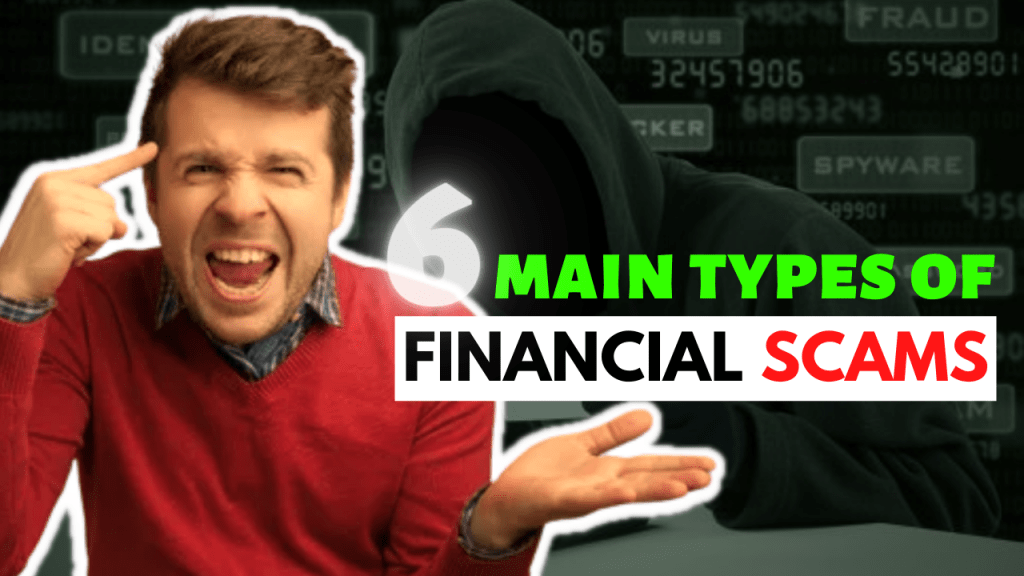
What are the types of scams in financial markets
The financial markets are always evolving. And it’s important to keep up with new innovations and market trends to ensure you’re doing your best to minimize the risks. This may happen when trading stocks, commodities, and other financial instruments. If you’re looking to avoid common scams in financial markets.
you can benefit from reading this article about some of the most frequently recorded financial scams. In addition to helping you avoid being scammed yourself, this information will also help you spot potential risks and pitfalls when you hear about them from someone else. So that you can warn others before they fall victim as well.
Here are some main types of scams in financial markets,
- Pump and Dump
- Misleading Information
- Social Media Impersonation
- Identity Theft
- Investment Fraud
- Pyramid/Ponzi Scheme
1. Pump and Dump
This scam involves artificially inflating a stock’s price and then selling at an all-time high. For example, a stock’s price is $5 per share and someone buys it in large quantities, which raises its price to $8 per share. Then they announce they’re selling and sell at $8 per share.
2. Misleading Information
Be on your guard for sketchy information about financial markets. Anybody who promises a quick and easy way to make big money should be punished. The basic rule of is that if something sounds too good to be true, it probably isn’t. Financial markets are risky places, be sure you know what you’re getting into before jumping in.
When in doubt, ask questions or consult with someone who knows more than you.
3. Social Media Impersonation
Social media scams are becoming more and more common. Users pretend to be a well-known finance personality or someone from a reputable financial institution in order to trick people into following their false advice. If you see posts on Twitter, Facebook, or other social platforms which don’t fit into your investment strategy and tactics. It is usually best to ignore them.
When in doubt, look up accounts on social media and other outlets by name before committing yourself to investing advice from that person or organization. If you cannot verify that an account belongs to who it claims, be safe by ignoring it. Also keep in mind that scammers are getting smarter all of the time, don’t fall as victim just because something seems too good to be true!
4. Identity Theft
Identity theft is a serious threat, especially when it comes to your finances. Having someone steal your identity and gain access to your bank accounts can be a nightmare. However, there are ways you can prevent it from happening. One of these ways is by using multi-factor authentication for your financial transactions.
Whether you’re using a banking app or logging into an investment platform, multi-factor authentication makes it harder for cybercriminals to get their hands on sensitive information. There are several companies that offer MFA options, but Google Authenticator remains popular because of its ease of use and low cost (it’s free).
An added bonus: Multi-factor authentication helps protect against phishing scams as well!
5. Investment Fraud
The financial markets are a highly regulated space for good reason. People who don’t understand risk or believe themselves immune to it usually lose money. That’s why it’s important that you seek out investment opportunities that are transparent and regulated.
Don’t fall prey to an opportunity that claims not be tied down by regulations. Make sure you know exactly what you’re buying before you buy into any opportunity. A simple Google search or YouTube review video can go a long way in protecting yourself from sketchy investment practices.
6. Pyramid/Ponzi Scheme
A pyramid scheme is a business model that recruits members with a promise of payments or services for referring others into the scheme, instead of supplying investments or sale of products. In reality, most investors in a pyramid scheme lose money. Pyramid schemes are illegal in many countries including Srilanka.
If you suspect that an investment opportunity is a pyramid scheme it may be reported at your local securities regulator or central fraud reporting agency. However, as each country has different laws and agencies. We recommend you research how your country deals with these scams and report them where relevant.
( If you wish to Watch a cool video explaining this topic – CLICK HERE )
How to protect yourself from financial scams
If you’re just getting started with financial markets and investments, or if you’re an experienced investor looking for a refresher, it’s always a good idea to take some time to review basic tips on how not get scammed. Many of these scams target beginners or uneducated investors, so knowing what they are and how they work will help you avoid falling victim.
However, even experienced investors can fall prey. Fake security breaches happen often enough that it give knowledge for all of us (at least once a year) to check in on what we know and more importantly, what we don’t know.
And also don’t seek for quick money making schemes or short term return schemes. It can risk you at a high rate. So be aware of your money which you earned through your hard work just vanished by your greedy stupidity or by a scammer’s target.
